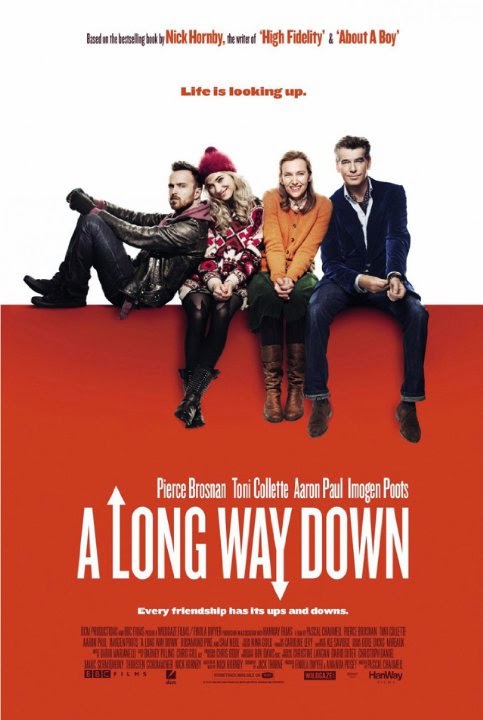Returning Home
I have heard that it is very hard for career criminals to
settle themselves back into normal life. Prison is all that they know and for
some, life outside of that prison is to chaotic that they will do anything to
get themselves back into the system. I have also heard the same for returning
soldiers from war. If not from PTSD or life without a ‘mission’, soldiers
sometimes have a difficult time letting go of what they just came home from. In
1946 an American Film Institute 100
Years…100 Movies film took a look at this very subject from the aspect of
returning World War II veterans with The
Best Years of Our Lives.
Three servicemen have come home to their small town in
middle America. Fred Derry (Dana Andrews Laura) was a decorated bombardier during the war and wants to build
on that type of prestige in his civil life. Derry wants desperately to leave
his previous life of working at the local drug store behind and make a fresh
start. Army sergeant Al Stephenson (Fredric March A Star is Born) is returning to a life a little more luxurious because
before the war Al was a banker and loved family man. However, Al must deal with
a bit of a drinking problem. Though the one soldier returning home that has the
most to adjust to is Homer Parrish (Harold Russell), a Navy sailor that
lost his hands when the aircraft carrier he was serving on sank. Homer must get
past his insecurities about his hands so that he may marry the love of his
life.
 In a way I found this film very ironic since nothing has
really changed about soldiers coming home from war and how the coupe with being
home. Now I can say that the American people have treated them a little better
now than the American people depicted in this film, but it is still eye opening
on how hard things can be for soldiers out of war. I believe that this is the
best thing about this film, just the performances be the three leading men.
In a way I found this film very ironic since nothing has
really changed about soldiers coming home from war and how the coupe with being
home. Now I can say that the American people have treated them a little better
now than the American people depicted in this film, but it is still eye opening
on how hard things can be for soldiers out of war. I believe that this is the
best thing about this film, just the performances be the three leading men.
There is really no ‘greatest performance’ from this film,
but I can say that each of the three leads to sell their struggle very well.
Stephenson is the least effected but his return home. He is returning to a
lavish lifestyle anyway, but apparently his drinking has become worse.
Stephenson does show how hard his character tries to cover his anguish by
drinking. Andrews, I think, does a wonderful job getting the audience to see
the determination that his character has to change his life. Derry is stuck in
a circle of disappointment that he will do anything to change it. Derry wants
to be respected the way he was respected in the Army. Though much of my respect
goes to Harold Russell who really lost his hands in World War II. The natural
acting he has in the film is what really sells the movie. Not a Humphrey Bogart by any stretch, but
Russell is able to make this character charming and strong-willed.
 Not much to say on the direction part has there was nothing
really spectacular with that aspect of the film, but I do have to show some
honor to director William Wyler (Ben-Hur) and his bold statement about
how we treated our returning World War II vets. Though most were welcomed back
as heroes, we still need to be reminded that there were a lot of people that
disagreed with the war (like always) and mistreated the returning soldiers.
They were blamed for the loss of lives and many were worried about jobs that
could be potentially lost to the returning veterans. Wyler took a stand and
tried to show that we didn’t need to treat our heroes this way.
Not much to say on the direction part has there was nothing
really spectacular with that aspect of the film, but I do have to show some
honor to director William Wyler (Ben-Hur) and his bold statement about
how we treated our returning World War II vets. Though most were welcomed back
as heroes, we still need to be reminded that there were a lot of people that
disagreed with the war (like always) and mistreated the returning soldiers.
They were blamed for the loss of lives and many were worried about jobs that
could be potentially lost to the returning veterans. Wyler took a stand and
tried to show that we didn’t need to treat our heroes this way.
Even though I thought that the 3 hours length was a tad too
long, I did enjoy the film. The Best
Years of Our Lives is a good look into Post-World War II America and the difficulties
everyone faced during this time, not just the soldiers returning home. With
great leading men and a respectful supporting cast, The Best Years of Our Lives is a film has its own place among film
history, just maybe a little lower on this list.
The Verdict: Worth Your
Time. Should Be Lower on List.



Comments
Post a Comment